The Grand Deceit of Alex Garland’s Warfare
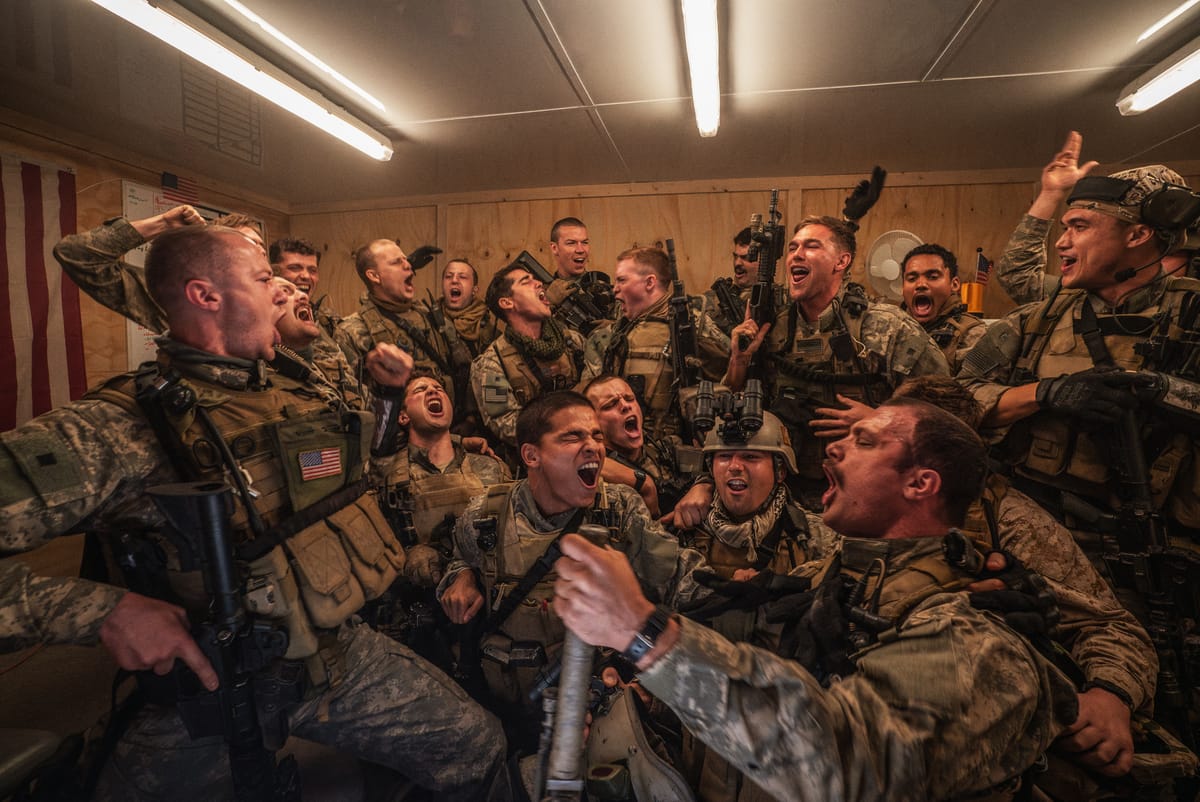
For all its claims of authenticity, Warfare is deeply deceptive. It starts by misleading you, a claim is put forward that ‘this film only uses their memories’ (their being the soldiers depicted therein). On a number of levels, this is profoundly untrue but the way it is untrue is deeply revealing about the film itself.
Let’s start out linguistically, the key offenders are the determiner, ‘this’, the adverb, ‘only’ and the verb ‘uses’. The determiner is picked out to make the film feel singular and special, while many films cover war, ‘this’ film is different. Though you don’t have to read it as such, there’s an implied comparison and, if read as such, it is disparaging wider films. If you read it as purely singular, even the claim to authenticity places it in opposition to other works. This film is not like other films. This is our first lie as Warfare doesn’t feel different. The verité approach fits in an established line of films that goes back at least as far as The Battle of Algiers, but the approach is hardly the point. A film is not just the stylisation, it is what is being stylised. Warfare is yet another narrative about the Iraq war, focusing on American soldiers, that shows how dangerous war is — how perilous, overwhelming and confusing. It is fundamentally doing what almost every other film about the same conflict is doing.
‘Only’ and ‘uses’ are our next offenders, though the noun, ‘memories’ is the root to explore first. It’s another lie, this film is not based on memories, it’s based on recollection or report. Memory is an internal and fallible process, a subjective and non literal one. If the film were based on memory, it would be akin to Rashomon. If it were like this, it would also be more truthful. What the film does is bulldoze through memory to create a canonical report of events. It’s clever enough to not claim to be ‘true’ in order to get away with the whole film being the act of constructing truth for the viewer. A continued exercise in artificially creating the authentic. To engage with the pained, surrealist truth of memory would make for an honest and meaningful film. This is why ‘uses’ is our first note of truth. It does ‘use’. It’s not meant this way but the accidental, negative connotation is very apt. Memories are used in that they are taken advantage of and warped. ‘Only’ takes us back to a lie, though.
This is the most egregious lie because it’s so obviously false, and so needlessly so. A counterpoint is Samuel Fuller’s excellent Big Red One, a far reaching presentation of World War II from an infantry perspective. A film animated by memory — though still not only memory— as the sole filmmaker served in the battles he shows: it is autobiography put on film and made cinematic in the process (and therefor, even here, adapted beyond memory). Warfare isn’t ’only’ memories as it was written by Alex Garland as well as Ray Mendoza, and then co-directed by the same pair. Both these roles necessitate creative acts and the memories the film is based are partially from Mendoza but not at all from Garland, it is based on recollection but if it were ‘only’ so then Garland not be in the picture. He is an author of the film with creative input.
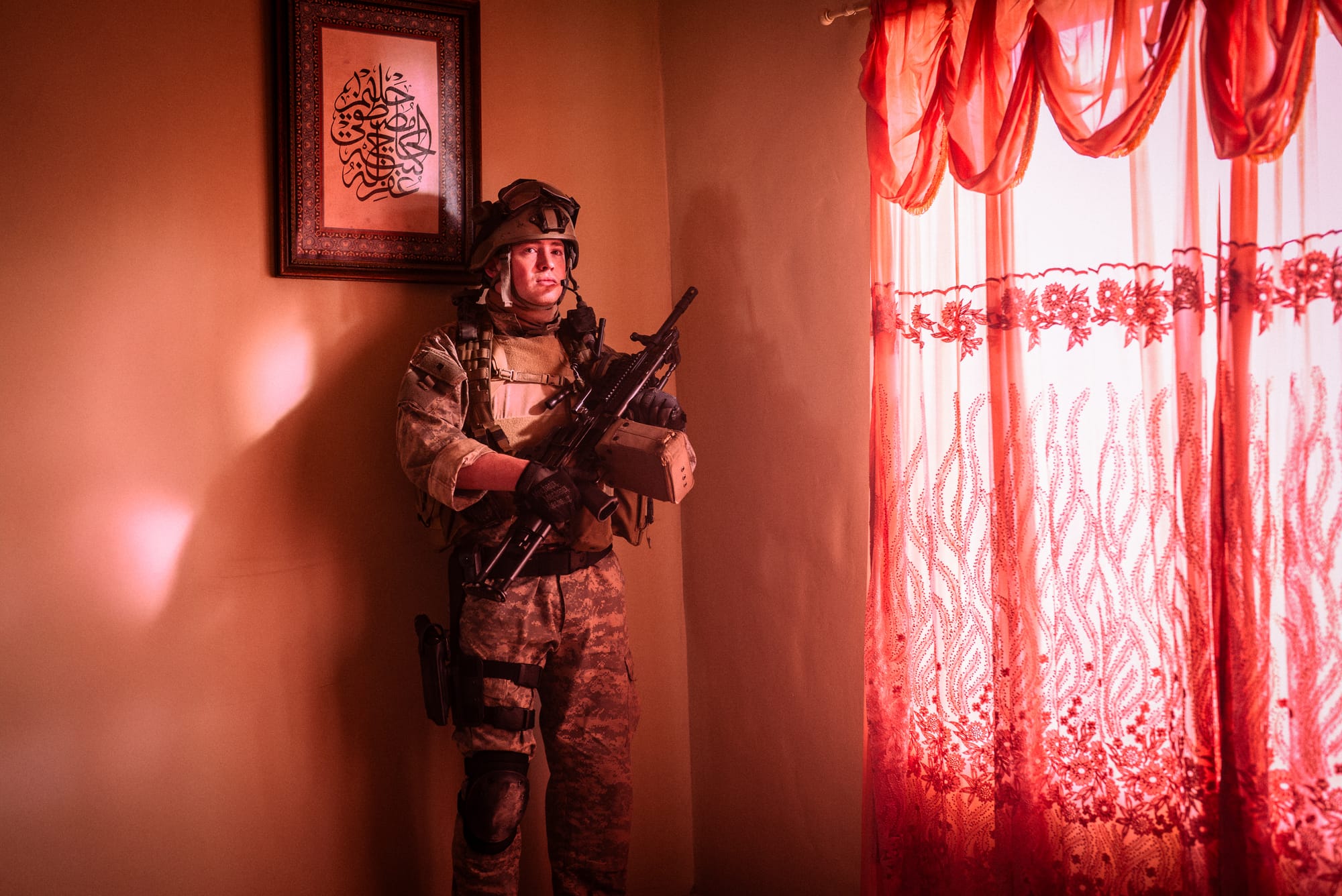
I stress this point because it is a lie, the film is a grand act of a deception. It wants you to think it is truth and therefore judge it as such. In doing so it wants to solidify a narrative, of the Iraq war specifically and of warfare more generally. It also belongs to a wider, conservative ideology that pushes against expertise and reporting in favour of intuition and sensation. Truth does not lie in memory, truth lies in analysis, deconstruction and research. If you want to put the truth of warfare on screen, and you want to convince, you tell the viewer that this is built upon research — that memory is one source used, and is recognised as an unreliable one. You also research the opposing force and you have to research the context around the event. Nothing exists in isolation and the truth of something exists in everything around it.
Warfare doesn’t want you to think this way, it wants you to adopt tunnel vision. It actually wants to be experiential, eschewing every perspective but that of the American squad in order to convey what it was like for them. This is actually quite a commendable and understandable aim. The problem is the deception and the execution. This is all about subjectivity but the film’s directorial approach betrays that. Everything is built around verisimilitude as opposed to evocation. A cold sense of distance is inherent, conventional cinematic devices (like non diegetic sound) are artificially thrown off to centre the point of realism. But it is the realism of limited recreation, so the film actually ends up as military reenactment as opposed to war cinema. It’s cosplay caught through fancy lenses, painstakingly choreographed.
This is deception, and it is why the opening statement should affront us. I focus on that statement because it’s a true indication of what the film is. As shown, it’s a precisely written and evocative claim. It avoids professional and academic language — with connotations of truth — to focus on something plain and evocative. It’s propagandistic in its idealised semantics. A sweeping statement that’s actually nonsense but that has the surface level feel of truth and authenticity. That’s the film: an obsession with authenticity that outranks actual meaning, purpose or impact.
The wider problem is, Garland isn’t the filmmaker for this job. He can’t do verité. Far from being a film of presentational truth, Garland can’t not speak with the tools of cinema. Process-driven slow cinema this is not, it may be very well blocked out but this is thriller syntax from behind the camera and in the edit. Craft is foregrounded, the camera very present and — frustratingly — there’s a persistent urge to cut and present multiple angles. A key scene is a large explosion. This explosion can’t just happen, we must cut between several perspectives as the explosion happens. One could argue this showcases wider impact but it’s also intrusive and doesn’t connote truth through cinema. The orchestration of emotion is evident and the film’s syntax is the opposite of dispassionate.
Much better films give the viewer space, the actual best comparison points here are Chantal Akerman and Béla Tarr. Jeanne Dielman maintains an artificial window into a world — that’s a falsity — but by continuing that window with no alteration, it allows the essence of truth to take place within it. The static frame is core to a cinematic language that conveys a sense of reality. Béla Tarr, notably when working with Ágnes Hranitzky, focuses on long takes — often wide shots — that allow action to unfurl. Within these frames, the incidental and the pivotal share equal space. The passive viewer is invited to be an active viewer, tasked with parsing detail as opposed to directed towards impact. Here, one of the key effects is the sense of truth. Garland, and Mendoza, create a film that leaves no space for the viewer. The camera interrogates detail and draws attention. The film does often work in static frames but rarely in long, sustained static frames. Successions of these have the opposite detail: frames of distinct meaning placed together (Kuleshov style) to evoke a specific meaning. The syntax of Warfare is instructive rather than open. It hands the viewer meaning and therefore is not interested in truth but in presentation. And while all film is inherently presentation, you can (as I’ve articulated) make aesthetic decisions that evoke a sense of truth.
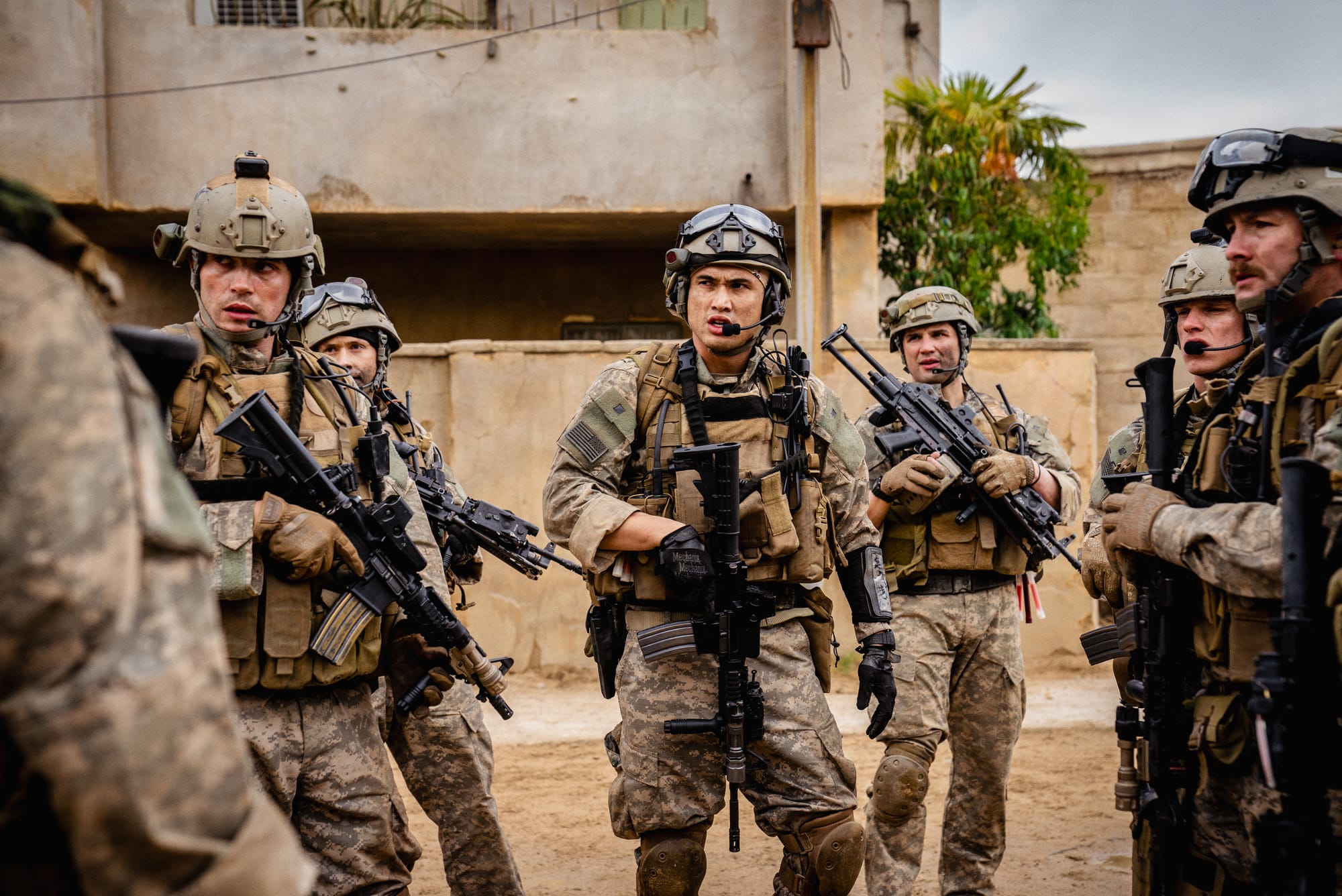
The reason I’m focusing so much on this is because the illusion of truth is really all Warfare has. It is built entirely around the sense of the real and being valuable because it conveys, as close as possible, a reality of warfare. But it doesn’t. Conceptually it is deceptive and on an execution level it can’t even deliver on the deception. We are not in a Triumph of the Will scenario in which Warfare is effective propaganda. It is propaganda but it is at least incredibly ineffective. The idea is to present a limited idea of what Warfare is and to crystallise that as fact. Much has been said about how this is an atypical war story that cuts through the heroic. Again, I assert that it’s the same story in disguise. The narrative is undeniably tragic but the tragedy is entirely based around American troops and what happens to them. This is another kind of heroism, a struggle against adversity that is fully endorsed as such by an ending proclamation that specifically gives a ‘thank you’ to the units depicted for ‘always answering the call’.
That’s the phrase used. What call? To digress, I have a strong memory of being in a politics seminar in my first year of university (2010), and a question was posed to all of us along the lines of who thinks the invasion of Iraq and Afghanistan was the right decision, or was just (I forget the exact framing). I believe this was specifically linked to British involvement but in endorsing British involvement you are tacitly endorsing the invasion anyway. I remember this moment because I was the only person to express disagreement, and everyone else treated me like I was a fool. History has been kind to me here. But this invasion is the wider ‘call’. The film can hide behind the cultivated illusion that warfare is a collection of moments and not the whole, that this incident is just an illustration of the horrors of war and only that. But this moment only exists because of that invasion, it takes place on the land of others and there is a family that spends the entire film held at gunpoint by American troops. It’s been argued this is criticism, a step away from the heroic image. Yet, the family come out of the events as unscathed as can be — a moment at the end could be a quiet way of showing impact but more so oddly shows a lack of impact. The family are now left alone, and while we can extrapolate that they are left with ruins, that’s not the focus. Perhaps now the film is doing what I wanted — leaving things to the audience — but the vast majority of the film is about painstakingly showcasing trauma and impact. It’s just that trauma and impact are only of worth when applied to American troops. The opposing force have no characterisation — a truth of the encounter but the encounter isn’t the actual truth. This moment is indelibly part of a wider conflict and the true tragedy is reliant on the context of the invasion. The most negative slant you can apply is that Garland and Mendoza have manufactured a narrative so as to present the Americans as the victims of the Iraq war.
Warfare is a film for the troops. It ends with a dedication to the troops, semi-goofy behind the scenes footage and a montage of pictures of the troops compared to the actors. ‘Look’, the film says, ‘at how well we presented the troops’. But this isn’t memory, this is recreation. Memory isn’t minute detail, it’s broad strokes and conflicting experience. I would argue that this meticulous presentation of the American military is a kind of fetishisation. It is a stealth fetishisation and therefore arguably a worse one than the cartoon of a Michael Bay film. In Warfare, legitimacy and authenticity is seen as existing only in the presentation of America and how its troops behave. This event is tragic but it is tragic because of the effect on the troops. I of course agree that the human impact is horrible, I just think the net of tragedy is far wider and that there is an American complicity that is actively evaded. The film wants to convey that war happens in the moment, but this is not the totality of war. The title also makes the film a definitive statement, yet more evidence of its propagandist nature (at this stage I will note that propaganda is not a criticism, the criticism here is what the film is propagandising).
War is hell. Well, yes. There’s nothing the film really adds to this conversation outside of obfuscating the way that war is hell. I struggle to find the point in it, even if it were effective. Realism is not the end point of cinema and itself is quite a dull goal. A fallacious one, also, as you will never actually reach it. It is distraction and deception, then, when all the film is a repackaging of the same myth of America but this time smothered in grit. America still owns the narrative. America still owns the pain. The fact that the failure becomes narrative also reaffirms American importance: they even fail in centre stage. It does only use memories then, it uses the memory of America, that false invention of grandeur and exceptionalism that exists only in the realm of the mind. It’s not counteracting that, it’s another way of presenting the same message — this time packaged as apolitical truth. It’s the sad, slowed down cover version of American jingoism.
The worst part, though, is execution. The cardinal sin isn’t imperialist propaganda, it’s that the film is actually very boring. The obsession with the actual renders it soulless, the abandoning of cinematic inflection leaves it lifeless. It claims to have no characters or narrative but it has both, they are just bad. This is not bold, non-narrative cinema, it’s just an event as a narrative and as a narrative it ain’t much. The lack of context also just means no emotional investment. Bad things happen for ninety minutes and it’s numbing.

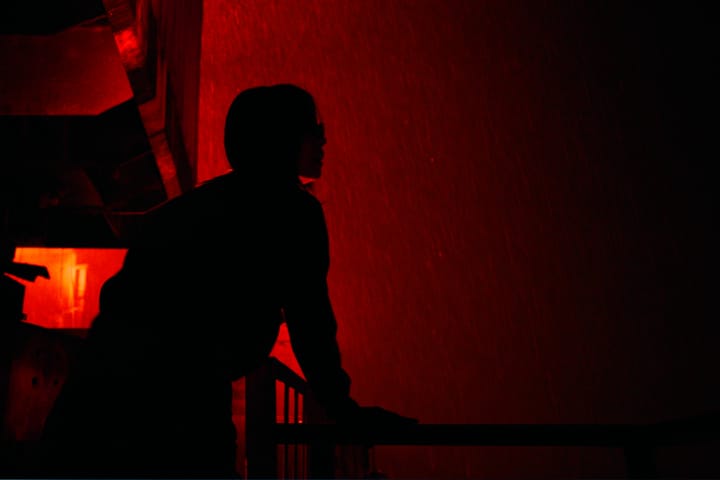
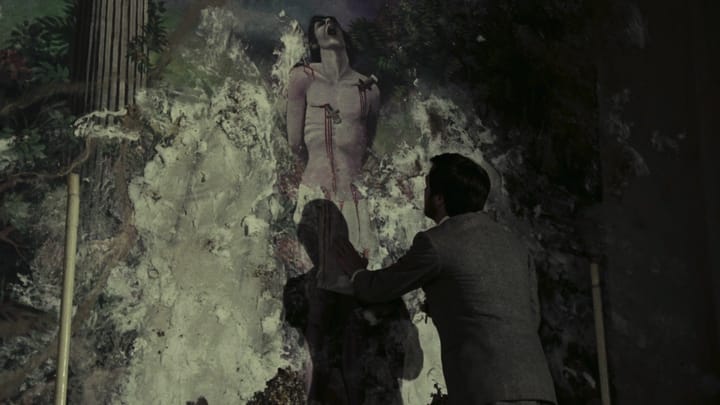
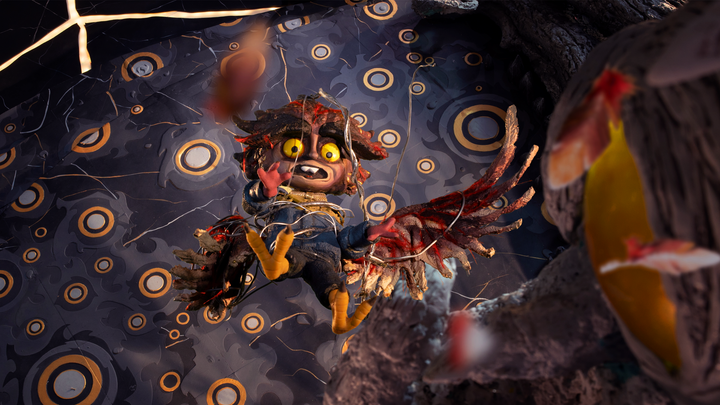
Comments ()